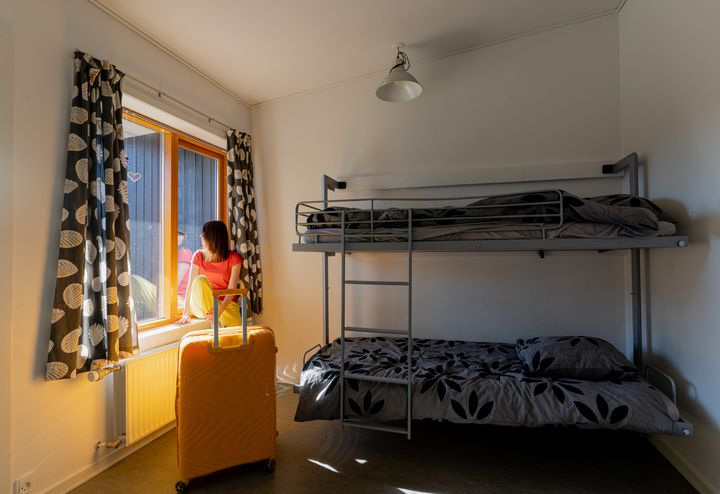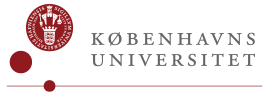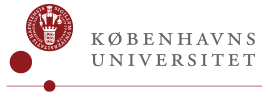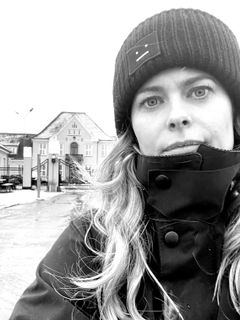How asylum seeker credibility is assessed by authorities

“It is thus stated to the Swedish immigration authorities that he was detained by the Taliban for two years, while he has stated to the Danish authorities that he was detained for about three years.”
This is one part of the reason why an applicant was denied asylum by the Danish Refugee Appeals Board in 2019. It is one of fifty asylum decision summaries, in which asylum seekers were denied asylum, that researchers at the University of Copenhagen’s Department of Computer Science investigated. The research sheds light on the role of data when the Refugee Appeals Board (the highest decision-making body) decides who is entitled to asylum – something that, according to the researchers, has thus far been underexposed in Denmark. Specifically, the researchers reviewed various data practices used by the board to makes decisions.
The decisive factor, according to the study, is whether the authorities consider the asylum seeker to be 'credible' or not. But how is credibility assessed?
"The Refugee Appeals Board must decide whether the applicant has a well-founded fear of persecution in their country of origin.Our review shows that this assessment takes place via a very complex procedure, where one can estimate using many types of data produced in many different places, that can be interpreted in many different ways. And, it is not unproblematic," explains PhD fellow Trine Rask Nielsen from the Department of Computer Science.
Inconsistencies equate with untrustworthiness
According to the study, the crux of the Refugee Appeals Board's decision is whether authorities encountered inconsistencies in the various data found in the system with regards to the individual applicant.
Data may consist of, among other things: the asylum seeker's testimony to the Immigration Service (initial decision); an asylum application form; he authorities' interpretation of self-reported information; register data from countries through which the applicant has travelled; facial photos and fingerprints; information from the applicants' Facebook profile and mobile phone; and not least, country reports about the applicant's country of origin produced by, among others, the Danish Immigration Service or NGOs like the Danish Refugee Council.
"In the decision summaries we analysed, applicants are deemed untrustworthy and refused asylum if discrepancies are found between different data sources. For example, as in the case above, where the Swedish authorities registered information about an applicant that conflicted with what was registered by the Danish authorities," says Trine Rask Nielsen.
Facebook can trap you
In many of the cases, the Board justified their refusal based on divergences in data from the asylum application and from country reports available on the situation in the applicant’s home country. But there can also be discrepancies between information on Facebook and information provided by that person in a different context:
“During the interview [in the spring] 2018 at the Danish Immigration Service, the applicant was given information from his own and his spouse's Facebook profiles, from which it appeared that they had been married [in the winter] 2016. The applicant explained that the date did not fit and that it had to be a mistake”.
"This example illustrates how authorities use new types of data to establish an asylum seeker's credibility when two data points contradict each other. In some cases, social media data is used as documentation," says Trine Rask Nielsen.
Data is never objective
In recent years, a trend has emerged of more and more data being produced on refugees around the world. This is done at both the NGO and government authority levels.
"The increasing amount of data and use of various data in asylum cases can make decision-making processes opaque for asylum seekers. While more data can be positive, it's important to keep in mind that data is never objective. We need to be especially critical when using new types of data as a basis for decisions that can have such a major impact on the lives of vulnerable people," says Trine Rask Nielsen.
She points out that the data included in the decision-making process is created in different ways, by different agencies and at different stages. And, that various asylum agencies interpret data differently from one another.
"Among other things, there is an asylum application form available for applicants to fill out if they choose to and if they are capable. But it is unclear what role the form plays if an asylum seeker fails to or is unable to fill it out. Furthermore, one decides for themselves whether to describe their motivation to seek asylum in 5 lines, or 10 pages. Beyond that, a person must go through several interviews, each of which can take up to eight hours. As the interviews are conducted in Danish, everything goes through an interpreter. Applicants are given a chance to correct potential errors in the summary that the caseworker has written down, as read by the interpreter, but only after many hours of interview," says Trine Rask Nielsen.
A squeeze on people's rights
Overall, the increasing use of data is a change of practice that can become problematic, as expressed in the study of the 50 decision summaries. According to the researcher:
"In these decision-making processes, where asylum seekers and authorities have a very unequal power relationship, democratic and legal rights are easily subject to pressure. Regardless of whether the data is recognizable to an asylum seeker or whether the applicant is even aware of data being produced, it can greatly influence the outcome of a case," says Trine Rask Nielsen.
Naja Holten Møller is an associate professor at the Department of Computer Science who leads the part of the research project on data and practices. She believes that the study is also important at a more fundamental level, in a society where data plays an ever-increasing role.
"As authorities increasing ‘datafy’ their decision-making processes, it is democratically important for researchers like us to have the opportunity to study their practices. Therefore, it is also about establishing a collaboration between asylum authorities and researchers, so that we can sit down together and discuss research results," says Naja Holten Møller, who continues:
"As a matter of principle, we should consider to what extent the use of data and databases supports our democratic value of transparency in decision-making processes. And we should look at how authorities consider those values in their work, both when developing practices and the data-based tools to support them. This study is an important first piece in establishing an opportunity to study how data is used in the asylum area."
FACT BOX 1:
- The Danish Immigration Service is the initial decision maker of asylum applications. If denied, the case is automatically appealed to the Refugee Appeals Board. Refugee Appeals Board decisions are final.
- The Refugee Appeals Board consists of a chairperson and a number of vice-chairpersons, who serve as judges. Additionally, the board consists of appointees recommended by the Danish Bar and Law Society and Minister for Immigration and Integration (source: fln.dk).
- There are wide variations in the chances of being granted asylum across European and Nordic countries. For example, in 2018, Somali applicants had an 8% chance of being granted asylum in their first instance in Denmark, while the chance was 34% in Norway and 48% in Sweden.
FACT BOX 2:
- In the study, the researchers conducted a qualitative analysis of 50 randomly selected decision summaries of asylum cases processed by the Danish Refugee Appeals Board between 2017 and 2020. In 44 of these cases, applicants were denied asylum. The summaries are published on the Danish Refugee Appeals Board website.
- The research article, authored by Trine Rask Nielsen and Naja Holten Møller, was presented at the ACM International Conference on Supporting Group Work (GROUP) in January 2023.
- The study is part of Trine Rask Nielsen's PhD project, which is part of a larger research project at the University of Copenhagen called Data Science for Asylum-Legal Landscaping (DATA4ALL). The project examines variations in asylum decision-making across the Nordic countries.
Keywords
Contacts
Trine Rask Nielsen
PhD Fellow
Department of Computer Science
University of Copenhagen
trn@di.ku.dk
+ 45 22 14 20 00
Naja Holten Møller
Associate Professor
Department of Computer Science
University of Copenhagen
naja@di.ku.dk
+ 45 27 59 57 92
Maria Hornbek
Journalist
Faculty of Science
University of Copenhagen
maho@science.ku.dk
+45 22 95 42 83
Images
About Københavns Universitet - Det Natur- og Biovidenskabelige Fakultet
 Københavns Universitet - Det Natur- og Biovidenskabelige Fakultet
Københavns Universitet - Det Natur- og Biovidenskabelige FakultetBülowsvej 17
1870 Frederiksberg C
35 33 28 28https://science.ku.dk/
Det Natur- og Biovidenskabelige Fakultet på Københavns Universitet – SCIENCE – er landets største naturvidenskabelige forsknings- og uddannelsesinstitution.
Fakultetets væsentligste opgave er at bidrage til løsning af de store udfordringer, som vi står overfor i en verden under hastig forandring med øget pres på bl.a. naturressourcer og markante klimaforandringer - både nationalt og globalt.
Subscribe to releases from Københavns Universitet - Det Natur- og Biovidenskabelige Fakultet
Subscribe to all the latest releases from Københavns Universitet - Det Natur- og Biovidenskabelige Fakultet by registering your e-mail address below. You can unsubscribe at any time.
Latest releases from Københavns Universitet - Det Natur- og Biovidenskabelige Fakultet
Old aerial photos give scientists a new tool to predict sea level rise3.7.2025 08:00:00 CEST | Press release
Researchers from the University of Copenhagen have gained unique insight into the mechanisms behind the collapse of Antarctic ice shelves, which are crucial for sea level rise in the Northern Hemisphere. The discovery of old aerial photos has provided an unparalleled dataset that can improve predictions of sea level rise and how we should prioritise coastal protection and other forms of climate adaptation.
Gamle luftfotos giver forskere nyt redskab til at forudsige havstigninger3.7.2025 08:00:00 CEST | Pressemeddelelse
Forskere fra Københavns Universitet har fået unik adgang til at forstå mekanismerne bag antarktiske ishylders kollaps, som er afgørende for havstigninger på den nordlige halvkugle. Et fund af gamle luftfotos har skabt et enestående datasæt, som kan forbedre vores forudsigelser af hvor meget havene stiger, og vores prioritering af kystsikring og andre klimatilpasninger.
Ny institutleder på IFRO: ”Faglighed og fællesskab går hånd i hånd”1.7.2025 10:49:17 CEST | Pressemeddelelse
Per Svejstrup er fra 1. august ansat som institutleder på Institut for Fødevare- og Ressourceøkonomi (IFRO). Den kommende leder træder ind i rollen med stor respekt for IFRO's faglige og kollegiale kultur med klare ambitioner for fremtiden.
Dangerous Variant of Salmonella Still Not Eradicated – Researchers Point to the Solutions1.7.2025 09:53:23 CEST | Press release
The infectious and multi-resistant cattle disease Salmonella Dublin can be fatal to both humans and animals and causes significant losses for farmers. Although Denmark has attempted to eradicate the disease since 2008, it has not yet succeeded. A study from the University of Copenhagen points to possible reasons – and the necessary solutions.
Farlig type salmonella er stadig ikke nedkæmpet i Danmark – forskere peger på løsningerne30.6.2025 09:54:03 CEST | Pressemeddelelse
Den smitsomme og multiresistente kvægsygdom Salmonella Dublin kan være dødelig for både mennesker og dyr og medfører desuden betydelige tab for landmændene. Selvom Danmark har forsøgt at udrydde sygdommen siden 2008, er det ikke lykkedes. Et studie fra Københavns Universitet peger på den mulige årsag og de nødvendige løsninger.
In our pressroom you can read all our latest releases, find our press contacts, images, documents and other relevant information about us.
Visit our pressroom

